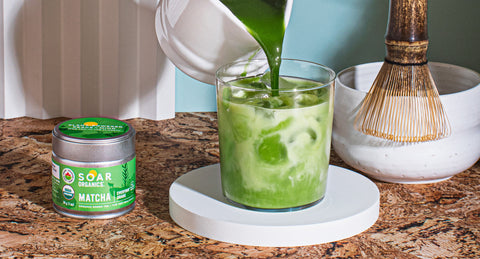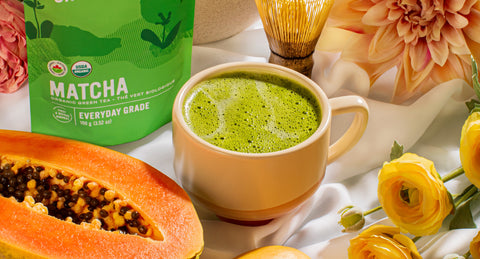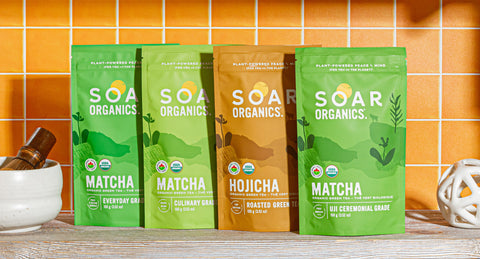Matcha, the finely powdered green tea hailing from Japan, is renowned for its vibrant color, distinctive flavor, and unique preparation. However, one aspect that often raises eyebrows is its price point, which tends to be higher than that of many other teas. In this exploration, we'll uncover the factors that contribute to the premium price of matcha, from cultivation to processing and cultural significance.
Shade-Grown Elegance:
The cultivation of matcha begins with a meticulous process known as shading. About 20-30 days before harvest, tea plants are shaded from direct sunlight. This technique, called "tana," encourages the production of chlorophyll and amino acids, resulting in a unique flavor profile and vibrant green color. The labor-intensive process of shading adds to the cost of matcha production.
Stone Grinding Precision:
The grinding of matcha leaves into a fine powder is a crucial step in its production. Traditionally, this is done with granite stone mills, which rotate slowly to prevent excessive heat that could affect the tea's quality. The stone-grinding process is time-consuming and requires precision, making it more costly compared to other methods used for producing tea.
Quality of Tea Plants:
Matcha is often made from specific cultivars of the Camellia sinensis plant, chosen for their flavor and aroma profiles. The selection of high-quality tea plants, along with the practice of shade-growing, contributes to the unique characteristics of matcha. These premium cultivars often come at a higher cost compared to more common tea varieties.
Cultural Significance:
Matcha is deeply ingrained in Japanese culture, particularly in the traditional tea ceremony (Chanoyu or Chado). The ceremonies emphasize mindfulness, respect, and the art of tea preparation. The cultural significance of matcha adds a layer of craftsmanship and ritual that elevates its value beyond a simple beverage, impacting its market price.
Labor-Intensive Processing:
The entire process of producing matcha, from cultivation to stone grinding, is labor-intensive and requires a high level of skill. The hands-on approach ensures the quality and authenticity of each batch, but it also contributes to the higher overall cost compared to more automated tea production methods.
Limited Yield per Harvest:
The shading process reduces the yield of each tea plant, as it limits the amount of sunlight the leaves receive. This limited yield, combined with the meticulous selection of leaves, further contributes to the scarcity of high-quality matcha, influencing its price.
Conclusion:
While the price of matcha may seem steep compared to other teas, understanding the intricate processes involved in its cultivation, harvesting, and production reveals the craftsmanship and care that goes into each bowl. The unique flavor, vibrant color, and plethora of health benefits make matcha more than just a beverage; it is an experience that comes with a price tag reflecting the dedication of those who bring this extraordinary tea to your cup. So, the next time you savor a bowl of matcha, consider it not just as a tea but as a piece of art crafted with precision, tradition, and a touch of Japanese elegance.



